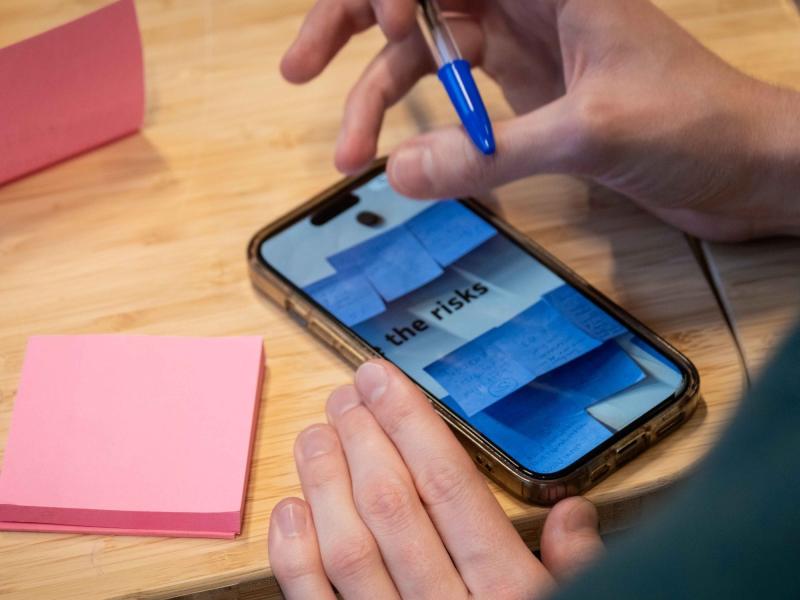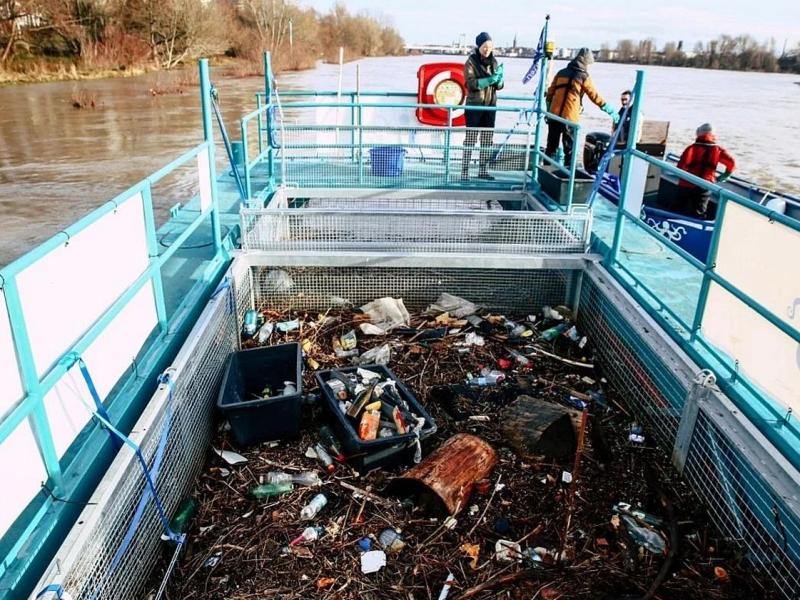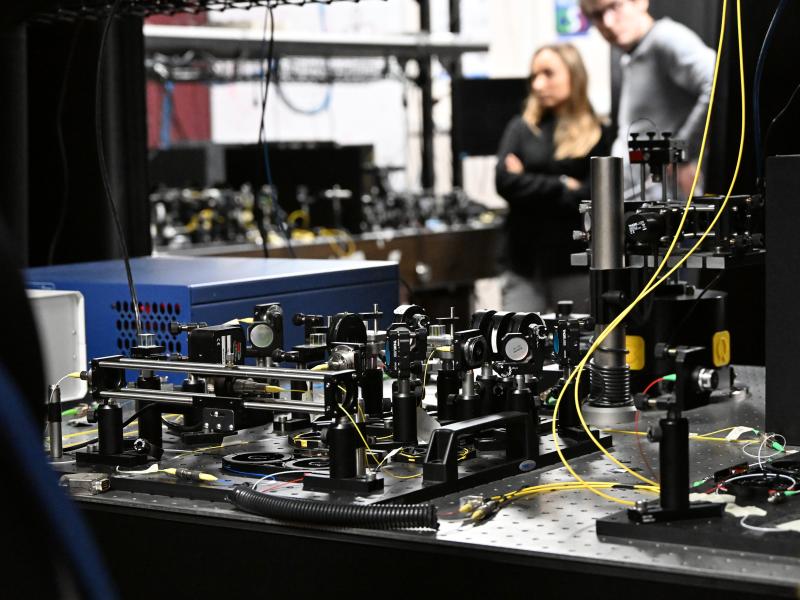Universities and research institutes in Europe and across the world are facing new challenges and disruption which are affected by the COVID19 outbreak. But these institutions are also working very hard to find out how the disease can be stopped and its impact alleviated. Science, Research and Innovation are at the frontline of the fight against the spread of COVID-19 but as our CIVIS President, Prof. Astrid Söderbergh Widding said, a strong network and collaboration between universities are at the utmost importance as this global crisis cannot be tackled alone. Open science will definitely play an important role in the future which is at the core of the CIVIS initiative strategy.
As civic universities, our CIVIS member universities are working closely with our cities, regions and national bodies to better tackle this crisis and help our scientific communities through the development of research projects and initiatives.
Research projects
Aix-Marseille Université
-
Swift COronavirus therapeutic REsponse project (SCORE)
Aix-Marseille université has been awarded a research grant for its SCORE project to develop antiviral therapy to fight coronaviruses. The project is being developed with six other European universities and institutions: Bern University, KU Leuven University, Leiden University Medical Center (lead partner), Utrecht University, Univerity of Lübeck, Helmholtz Centre for Infection Research and Janssen Pharmaceutica. The project aims at developing antiviral drugs that could be used to treat patients in the short and medium-term to limit the spread of coronaviruses.
-
Combating 2019-nCoV: Advanced Nanobiosensing platforms for POC global diagnostics and surveillance project (CoNVat)
Aix-Marseille Université received a second grant of €2.4million from the EU for its CoNVat project which aims at developing a platform for rapid diagnosis and monitoring of coronavirus through the conception of a new device based on nanotechnology that will allow fast detection of coronaviruses. This project involves the partnership of three other institutions: Catalan Institute of Nanoscience and Nanotechnology (lead partner), Italian National Institute of Infectious Diseases and the University of Barcelona.
-
Rapid interaction profiling of 2019-nCoV for network-based deep drug- repurpose learning (RiPCoN)
Through its health and research institute (INSERM, Marseille), Aix-Marseille Université is participating in the RiPCoN project which is led by the Institute of Network Biology (INET), in Neuherberg (Germany). The project will perform a computational study of the interactions between coronavirus and human cells, with the aim to identify drugs (already on the market or in trials) that can halt the spread of the virus.
-
IHU - Chloroquine treatment against COVID-19 research project - IHU « Méditerranée Infection », led by Pr. Didier Raoult
Reference centre for research, screening and treatment of Coronavirus in the Paca region. The IHU is carrying out 1,000 screenings per day and is also working on molecules known to try to find an effective treatment for the coronavirus COVID-19.
Contact details: Pr Didier RAOULT, IHU Méditerranée Infection, didier.raoult@gmail.com
-
The European Virus Archive Global (EVA-GLOBAL)
This European research infrastructure project "The European Virus Archive GLOBAL (EVA-GLOBAL)" consists of a network of virus biobanks and associated biological material, bringing together 35 laboratories from 17 different countries including Aix-Marseille université. The overall objective will be to create and mobilise an international network of high calibre centres around a strong European group of institutes selected for their appropriate expertise, to collect, amplify, characterise, standardise, authenticate, distribute and track, mammalian and other exotic viruses. The project will integrate more facilities dedicated to high-risk pathogen (HRP) manipulation (1 in EVA, 13 in EVAg).
Contacts :
- Xavier De Lamballerie, Director of UVE: Xavier.De-Lamballerie@medecine.univ-mrs.fr
- Jean Louis Romette, Enseignant chercheur: jean-louis.romette@univ-amu.fr
National and Kapodistrian University of Athens
The Medical School Clinics and laboratories of the University of Athens have joined the covid-19 group of experts of the city of Athens to better tackle the disease. Many students from the Medical School have also offered their help and are conducting medical tests in the laboratories of the university.
Université libre de Bruxelles
-
18 research projects will be funded following the Covid-19 call launched within the University.
With the high mobilisation of ULB's research teams and university staff, and thanks to the incredible support from donors 18 research projects will be funded following the Covid-19 call launched within the University.
To discover them: https://www.ulb.be/fr/mecenat/appel-special-covid-19-ulb
Stockholm University
-
Fight-nCOV project
Stockholm University received a grant of €2.8million to develop an antiviral treatment for the new Coronavirus. The project, under the name of Fight-nCoV, is led by Anna-Lena Spetz, Professor of immunology at the Department of Molecular Biosciences a Wenner-Gren Institute (Stockholm University). This project involves research teams from Sweden, France, Germany and Denmark.
-
New mapping shows which cells SARS-CoV-2 can infect
An international group of scientists, with researchers from SciLifeLab, Stockholm University, Karolinska Institutet, and KTH Royal Institute of Technology, have identified which cells in the body that the new coronavirus (SARS-CoV-2) can infect. The results, published in Nature Medicine could lead to better treatment of the virus.
-
New study looks at the connection between the sense of smell and COVID-19
Research reports and anecdotes show that people with COVID -19 can experience a reduced sense of smell and taste. Researchers at Stockholm University will join a large international team investigating the connection. The project is being developed by the Global Consortium for Chemosensory Research (GCCR), a network of over 400 researchers from 50 different countries
-
Research project on Children's fears in the time of Covid-19
Many children see the future as frightening and uncertain, especially at the present time. Helena Hörnfeldt, Associate Professor of Ethnology, has recently completed a research project about children’s fears, both past and present.
University of Tübingen
-
PREVENT-nCoV
The University of Tübingen, member of the PREVENT-nCOV consortium has been awarded an EU grant of €2.7million for their COVID-19 vaccine development programme. The consortium aims to develop and test a vaccine for COVID-19 in PHI/IIa clinical studies within 12 months. The consortium members are AdaptVac (Lead partner of the project); Institute for Tropical Medicine (ITM) at University of Tübingen; Department of Medical Microbiology, Leiden University Medical Center; Department of Immunology and Microbiology, University of Copenhagen; ExpreS2ion Biotechnologies, and Laboratory of Virology, Wageningen University.
- Research project: Studie zur Immunantwort auf das Coronavirus - Medizinische Klinik - Translational Immunologie
The Department of Immunology at the University of Tübingen is working on a project to develop new diagnostic, prophylactic and therapeutic measures for COVID-19 disease, which is triggered by the novel coronavirus SARS-CoV-2. To this end, the team is currently examining blood samples from people who have had a positive history of the virus (SARS-CoV-2) in order to analyze whether and how the immune system recognizes the virus.
Research and scientific initiatives
Université libre de Bruxelles
ULB researchers are involved in the fight against COVID-19 on multiple fronts: laboratory diagnosis, mapping and monitoring of the epidemic, deciphering the impacts on us, our health and our society. For further information, please read their special dossier:
https://actus.ulb.be/fr/actus/recherche/le-covid-19-sous-la-loupe-de-the-conversation
Universidad Autónoma de Madrid (UAM)
46 researchers from UAM have joined an initiative to provide the Spanish public health system with their voluntary work to fight coronavirus. 30 of them expressed that they are willing to commute to other locations within the Madrid Autonomous Community to provide those services if needed. Additionally, we offered 6 research laboratories to perform real-time RT-PCR for diagnosis of COVID-19 infection.
-
Research study on the influence of COVID-19 confinement in students’ performance in higher education
A group of researchers from UAM have analysed the differences of assessments of 458 students to explore the effects of COVID-19 confinement in the students’ performance in higher education.
To learn more: https://edarxiv.org/9zuac
-
Set up of a new COVID-19 diagnosis unit to perform up to 500 tests per day
The Autonomous University of Madrid launches a new COVID-19 diagnosis unit working with IIBM (UAM-CSIC centre) and the Madrid Scientific Park Foundation. The unit will carry out PCR tests to detect the SARS-CoV-2 coronavirus and will have the capacity to perform up to 500 tests per day.
-
Centro de Biología Molecular Severo Ochoa, a joint centre UAM-CSIC
The Centro de Biología Molecular Severo Ochoa, a joint centre UAM-CSIC, is analyzing hospital’s aire, to detect the presence of the virus and find solutions that prevent its spread.
-
Segainvex, UAM’s prototyping centre
Segainvex, UAM’s prototyping centre made all its capabilities available to the Government to produce medical supplies to fight the coronavirus (CNC machining centres, CO2 laser cutting systems, waterjet cutting systems, 3D printer, etc) and is manufacturing protective masks for healthcare workers with 3D printer
-
UAM Faculties of Sciences and Medicine
UAM’s Faculties of Sciences and Medicine are providing medical supplies to the Hospital Infanta Leonor.
University of Tübingen
The Vietnamese-German Center for Medical Research in Hanoi at the University of Tübingen provided 6,000 swab tubes for a clinical study to develop a COVID-19 drug.
On 27 March 2020, the University of Tübingen, in cooperation with the Universities of Hamburg and Stuttgart, started a clinical study for the testing of a drug against the coronavirus. To carry out the study, smear tubes are necessary, which are currently not available in sufficient numbers in Germany. The Vietnamese-German Center for Medical Research (VG-CARE) in Hanoi has made 6,000 tubes available to support this study.
Related news
-

Innovative micro-credential for professionals on AI for the workplace launched by CIVIS
Learn
10 February 2026 -

Litter in the Rhine River: some 53,000 items of litter flow past Cologne daily
CIVIS Highlights
4 February 2026 -

SUR's modular photonic computer is now fully operational
CIVIS Highlights
26 January 2026